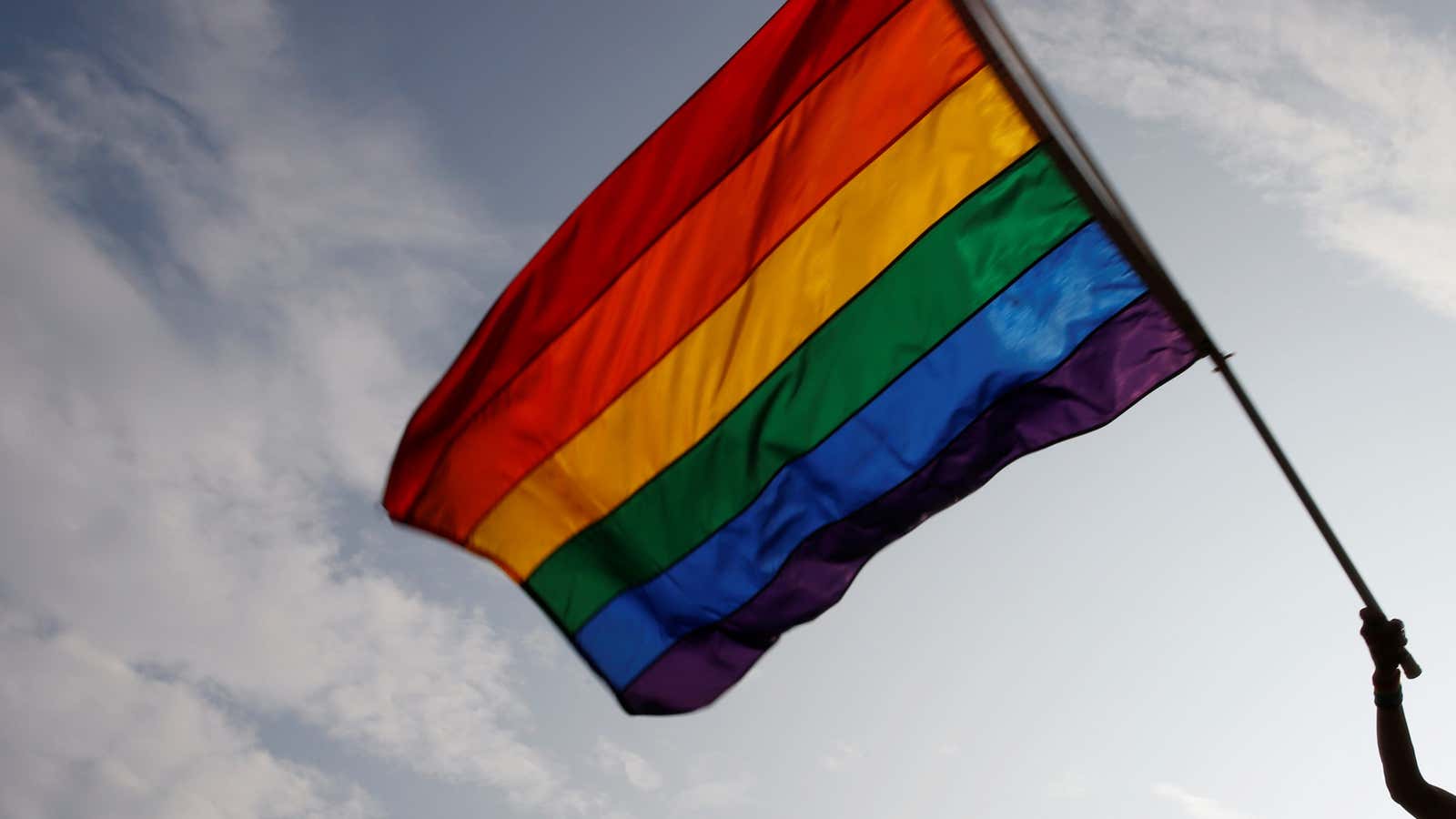There is now one fewer country where homosexuality is a crime. The High Court of Botswana today (June 11) struck down colonial era penal codes that made same-sex relations punishable with jail terms.
In its landmark ruling, the court ruled to scrap parts of sections 164 and 167 of the penal code which prescribed a seven-year jail term for same-sex relations (also described as “carnal knowledge against the order of nature”), citing the discriminatory nature of the laws.
The ruling is in line with the high court’s previous decisions regarding LGBTQ rights in the southern African country, coming just over a year after it ruled to make it easier for transgender persons to change their stated gender on national identity documents. In 2014, the court also ruled that the government must allow the registration of Legabibo, a gay rights organization, which means the group can officially open bank accounts and pursue legal cases. As far back as 2010, Botswana’s employment act had criminalized the termination of employee contracts on the basis of their sexual orientation.
Botswana’s ruling follows a similar decision by Angola’s parliament, which voted to drop anti-homosexual colonial era provisions in its penal code in January.
However, those evolving legal positions are not yet widespread across Africa. In a high-profile ruling just last month, Kenya’s high court decided against abolishing its colonial-era anti-gay laws. And Nigeria, the continent’s most populous country, updated its anti-gay laws in 2014 making homosexuality punishable with a 14-year jail term.
Sign up to the Quartz Africa Weekly Brief here for news and analysis on African business, tech and innovation in your inbox
